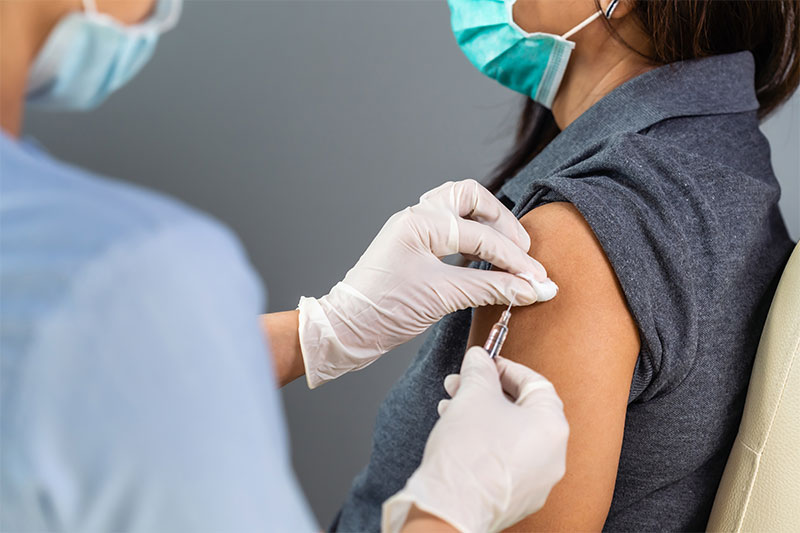
Whether you are ready to get an mRNA vaccine such as Moderna or Pfizer or a viral vector such as AstraZeneca or Johnson & Johnson, you must prepare yourself for getting the shot. Regardless of it being the first or second dose with the vaccines other than Johnson & Johnson, it is a one-dose jab. You must prepare yourself to bring the right documentation for getting the jab, including your ID, health information, and anything else the clinic needs before giving you the vaccine. You also have to wear a short-sleeved shirt so they can lift your sleeve to jab you on the upper arm. Tank tops are better if you are comfortable with them and if you are in a warm setting. The clinician will ask you several questions before they give you the vaccine, as they are standard questions about your overall health.
Now you know what to do to get the jab you will also know that you have to wait around the clinic for 15 minutes after getting it. According to the CDC, this is standard as after getting any of the COVID-19 vaccines; there is a one in a million chance you could have a severe allergic reaction, which is anaphylaxis. Anaphylaxis can be fatal as the histamine your body produces to fight the foreign substance, the thing you are allergic to becomes so potent that it can swell your body up everywhere which can stop you from breathing. Fifteen minutes is how long it takes for allergic reactions to show after the shot if you have had no history of allergies, and if you have a history of vaccine allergies, they will ask you to wait for a half-hour after the shot.
Does An Allergic Reaction To The Vaccine Always Result In Anaphylaxis?
Anaphylaxis is the worst-case scenario when it comes to having an allergic reaction to the vaccine, which requires a treatment of epinephrine that the staff has on hand. If you have a history of severe allergic reactions to vaccines, you should always carry that too. However, the staff still has to watch for mild allergic reactions even if you get nothing worse than hives. They would give you Benadryl in that case.
Even though these reactions are rare, especially among those who have never had an allergic reaction to vaccines, the chances of it happening are not zero either. That is why after getting your shot the staff must watch you for at least 15 minutes where you sit around on a chair in the middle of the area where you get your jab whether it is a pop-up community center, arena, amusement park, pharmacy, or a hospital. You must stick around for that time in case something happens.
Could You Get An Allergic Reaction Later To The Vaccine?
Getting an allergic reaction to the vaccine after 15 minutes or a half-hour is unusual. However, you will get other side effects from the vaccine such as a sore arm where you had the jab, potentially fatigue, headache, fever, and may have other flu-like symptoms. That is normal and to be expected which has nothing to do with any type of allergic reaction. It has everything to do with your immune system being at work and that is what it is supposed to do after you get the vaccine.
Getting the COVID-19 vaccine is completely voluntary. However, if you are able to take vaccines, you should opt to get one. That is because the more vaccines that people get, the more chances of herd immunity will happen. You want there to be herd immunity so that you can beat the pandemic, and you can begin doing the things that you did before the pandemic began. You also want to get the shot to protect those who cannot get vaccinated.


